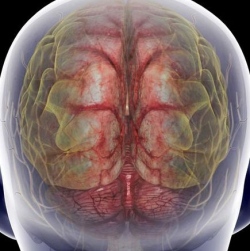
The Potomac Institute for Policy Studies convened a conference of neuroscientists and philosophers to ponder how our brains generate thoughts about ethics, values, and morality.
Neuroeconomist Gregory Berns from Emory University found in fMRI studies that values identified as sacred were processed in areas of the brain associated with semantic rule retrieval, but when sacred values were contradicted by their opposites (e.g., to a believer asserting “You do not believe that God exists”), the researchers found arousal in the amygdala, which is associated with negative emotions.
Philosopher William Casebeer, a DARPA program officer, addressed the issue of how to square determinism in neuroscience with a moral philosophy that celebrates the freedom and responsibility of agents.
He urged us to consider a schema of meaningful control distinctions devised by philosopher and artificial intelligence theorist Aaron Sloman.
A large working memory gives a putative agent more control than a small one; so too does an ability to learn versus a fixed repertoire; having a theory of mind versus having none; ability to reason counterfactually versus none; robust reward prediction mechanism versus a weak one; and a multi-channel sensory suite versus a single one.
long these dimensions organisms (and perhaps one day artificial intelligences) can be ranked from microbes to humankind with regard to being more or less in control.
University of San Diego neurophilosopher Patricia Churchland said our values come from a combination of our in-born social instincts,habits, and reason. The hub of these instincts is the molecules oxytocin and vasopressin that encourage attachment and trust. Mammalian attachment and trust are the platform from which moral values derive.
Bigger brains help by giving humans greater capacity to learn habits and override and repress impulses and to plan. Better memories help us keep track of who did what to whom and why, thus enabling us track reputations and seek out cooperators. Culture is an essential part of the story, guiding and limiting our moral choices.
